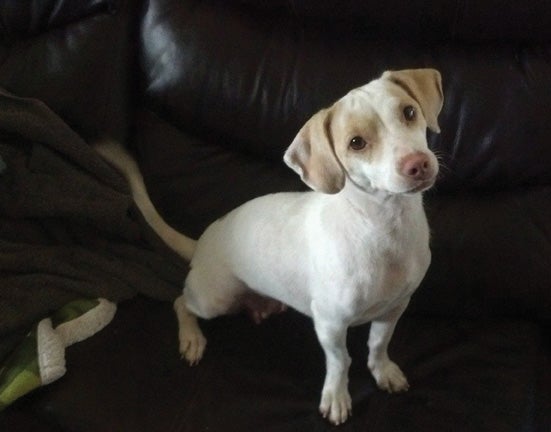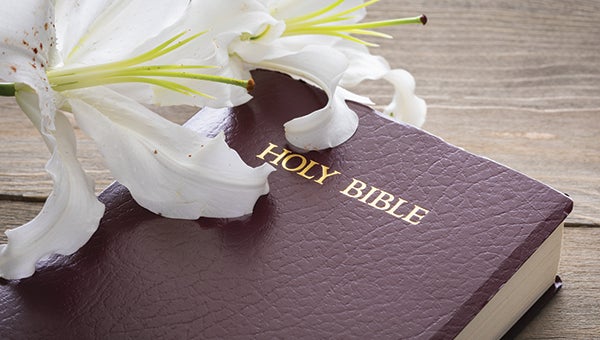The importance of spaying and neutering
Published 11:45 pm Saturday, October 12, 2013
The Magnolia Chapter of the Humane Society of Louisiana does not operate a shelter. It’s a “no kill” foster-based rescue that currently has foster homes housing dogs, puppies, cats and kittens.
Importantly, it also sponsors a high volume, low cost spay/neuter program. So far this year, Magnolia has facilitated the spaying or neutering of 1,263 dogs and cats, found permanent homes for 170 companion animals and made possible the adoptions of dozens of others.
The impact is far reaching.
The Magnolia story started in June 2008, said Secretary/Treasurer Kay Grantham.
“We formed our group because we felt we could make a difference for companion animals in Washington Parish,” she said. “We began with a couple of foster homes and were taking our rescue cats and dogs to Picayune, where there was a high volume, low cost spay/neuter clinic.”
That’s where they met Dr. Jacqueline Broome, the veterinarian who performed the surgeries, and Carla Gerrard, who had organized the program.
As the Magnolia group volunteered on the spay/neuter days, it soon dawned on the members that they could use the program as a model for one to control the companion animal populations in Washington Parish.
“With the encouragement of Carla Gerrard and Dr. Broome, we held our first spay/neuter clinic in February 2009,” Grantham said. “We transported cats and dogs to Dr. Broome’s hospital in Gulfport about once a month.”
In the first year approximately 600 cats and dogs were spayed/neutered through the Magnolia program.
“As word spread we continued to use our transport system to reduce the number of unwanted cats and dogs in Washington Parish by preventing litters of kittens and puppies,” Grantham said.
In June 2012 Broome bought a small house at Crossroads, and Magnolia began using it as a satellite clinic for its spay/neuter program.
Two months later the group obtained a grant to spay/neuter 1,068 cats free of charge. With that project now completed, Magnolia has applied to do the same for area dogs.
The effects are dramatic.
“Two cats having two litters per year with 2.5 kittens surviving per litter will give you 60 cats in two years,” Grantham said. “Cats can actually have three litters per year and usually have four to six kittens per litter. That is not something most people can deal with. It is easy to get overwhelmed quickly just by being kind hearted.
“Many times when someone calls us about a cat or kittens or a dog or puppies that they don’t want or can’t keep, we are able to tell them about our relatively low cost spay/neuter program, and they decide maybe they can keep them after all. When a stray comes to your door and you are looking at a good bit of money to care for it and its offspring properly, you become overwhelmed and immediately think of how you can get rid of it. We want to help people do the right thing by taking in those abandoned cats and dogs.”
All along, in addition to stemming the populations, Magnolia has continued to rescue and foster homeless cats and dogs. That includes those found starving on the street or in boxes on doorsteps and those facing euthanasia in overburdened shelters, including the small one behind Bogalusa City Hall.
“If the shelter is full and more animals have to be taken in or picked up, then some of the ones already there have to die,” said Grantham. “We try to publicize the dogs in danger on our Facebook page so that someone may be willing to adopt or foster them.”
They also physically take the animals to the public.
After a lengthy
application process, in October 2011 Magnolia was accepted as an adoption partner for a large animal charity and began regular visits to PetSmart in Covington with adoptable animals.
“This dramatically increased our adoptions as it allowed us to show our rescued cats and dogs to animal lovers,” Grantham said.
But until all pet owners realize and act upon the fact that they have a responsibility to future generations and must spay or neuter, the work will be never-ending.
Magnolia’s immediate aim is to get additional foster homes.
“A foster home cares for one or two dogs, puppies, cats or kittens until they are ready for adoption,” Grantham said. “Each foster has the final say about which animal or animals they foster. We offer support with care for the foster’s pets.
“Some animals we ask people to foster, and sometimes people rescue a cat or dog and want our help with placing it in a loving home. We do have a program for that also.”
The spay/neuter program, which currently treats about 100 dogs and cats per month, will also continue.
Grantham said spaying and neutering benefits the animals, the people who love them and the community in general.
“When life improves for the companion animals then life is better for everyone,” she said. “Even people who are not ‘pet lovers’ can understand that homeless, starving dogs and cats are not good for the community.
“Every person can do something to make Washington Parish an example of how a community should treat the creatures who share our lives. If you can adopt, then do it. If you can’t adopt, then foster. If you can’t foster, then donate. If you can ‘t donate, then share the information with your friends and relatives, strangers, too.”
The animal rescuers need donations of money, cat food, dog food, cat litter, collars, leashes, blankets, towels, bleach and time.
“We need volunteers of all kinds,” Grantham said. “If you like computer work or paperwork, hands-on care of animals or publicity or photography, there is something for anyone who would like to get more involved.”
To get involved or for additional information, call 985-241-4290, check them out on Facebook, at magnoliahumane.rescuegroups.org online or email magnoliahumane@yahoo.com. Donations may be mailed to Humane Society of Louisiana, Magnolia Chapter, PO Box 854, Franklinton, La. 70438.






